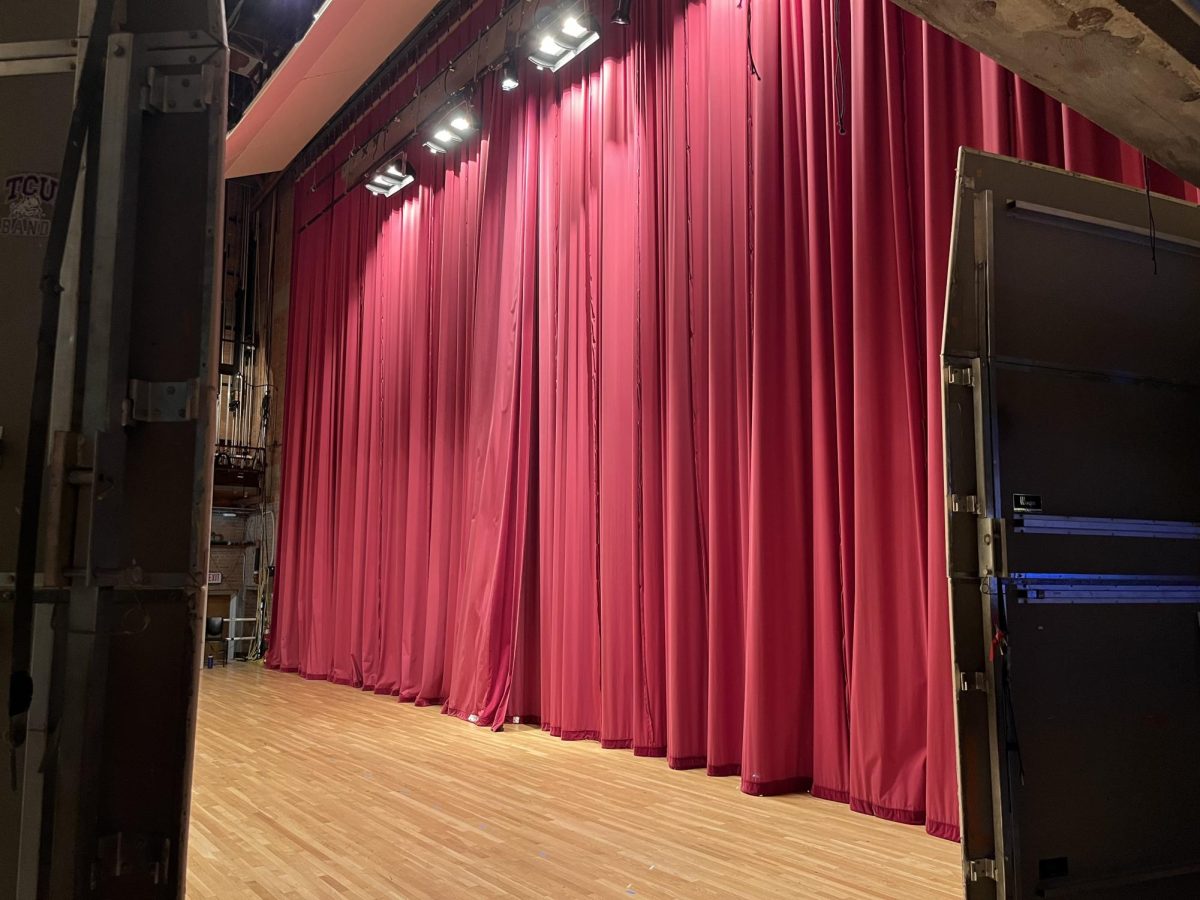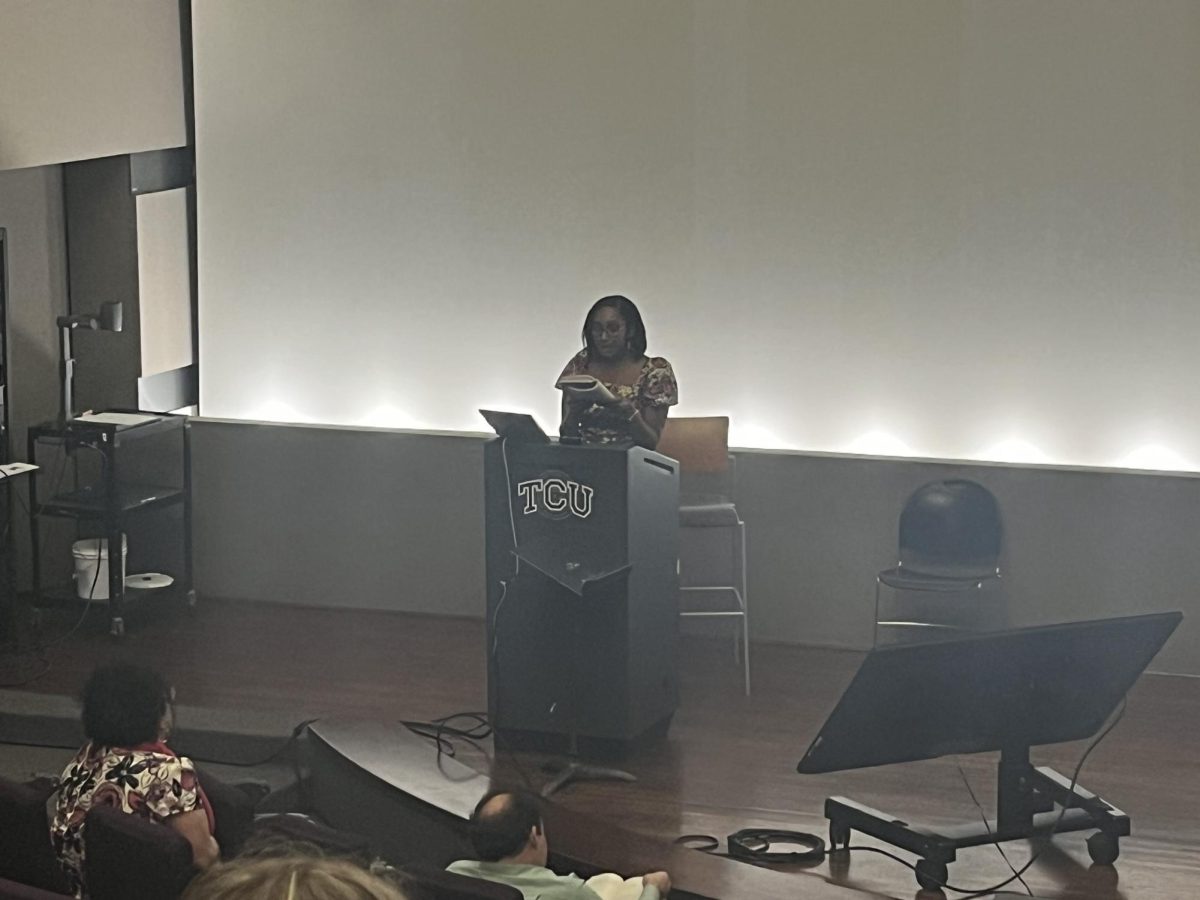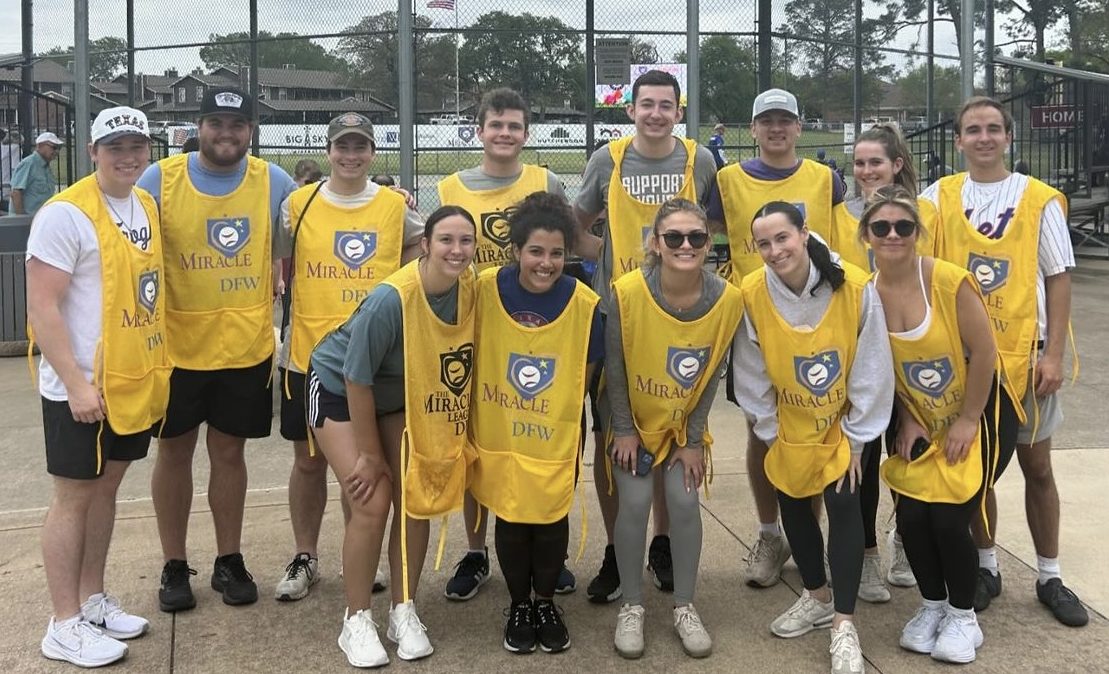The Texas Commission on Environmental Quality honored Becky Johnson’s groundwater hydrogeology class as the “TCEQ EnviroMentor of the Year” for a project it did for the town of Barksdale.
Johnson said her groundwater hydrogeology class took on a nine-week project to help Barksdale find alternatives for its water shortage, which was due to the lack of rainfall in Central Texas.
Fifteen students enrolled in the class and formed task teams to take on various aspects of the project, she said.
The class researched the geology and aquifers in the town and talked to drillers and engineers from nearby towns facing similar problems to come up with ideas for Barksdale, Johnson said.
“We pulled together a tremendous amount of information for them and evaluated a number of options for them- drilling deeper, which aquifer to drill into,” she said. “We even looked at having to haul water in from another town.”
Johnson has been an EnviroMentor for TCEQ since the start of the program in 2001, she said.
Johnson said that Jane Scheidler, the EnviroMentor program coordinator, planned to present the class with the “EnviroMentor of the Year” award in May.
The class also conducted research on water conservation, drought conservation and contingency planning. They included the research in their recommendations for Barksdale because of the high chance of water shortages reoccurring in the town, Johnson said.
Barksdale’s entire water supply came from two very shallow 50-foot wells that were both reliant on the flow from the Nueces River. When there was a lack of rainfall, river levels dropped and there was no water left in the wells, Johnson said.
“The end result is that they got some rain, so they got some more water in their wells; they are doing okay right now,” she said.
Sally Clark, a sophomore environmental science major, said the project showed her that a single class could make a difference at the state level.
Clark learned that it took a lot of effort, background research, time and commitment to write a report, she said.
“I learned how to work as a group, and do your own part and step up,” she said. “This took a lot of outside class work and communication.”
Environmental science graduate student Danielle Cochran said the project gave her more than she could have learned in a textbook because it was real-life practice.
Cochran was thankful Johnson brought this project to the class, she said.
“She [Johnson] was awesome; she spent a countless amount of time editing the report, putting extra information in there and making it look really good,” Cochran said. “She was always available to help us.”
Johnson said the project went really well and she thought they turned out a really good product. Barksdale now has a lot of information it never had about its system and the geology in the area as well as its options for the future, she said.
“A typical groundwater class is more theory and we spend a lot more time on things in the book,” she said. “But when you get out of the classroom, this is what you do with the information. So they voted to take on this project, and I think they walked away with really useful technical skills.”
Scheidler has looked at taking this project and turning what the class accomplished into a guidance document for other small cities that were in situations similar to Barksdale, Johnson said.





